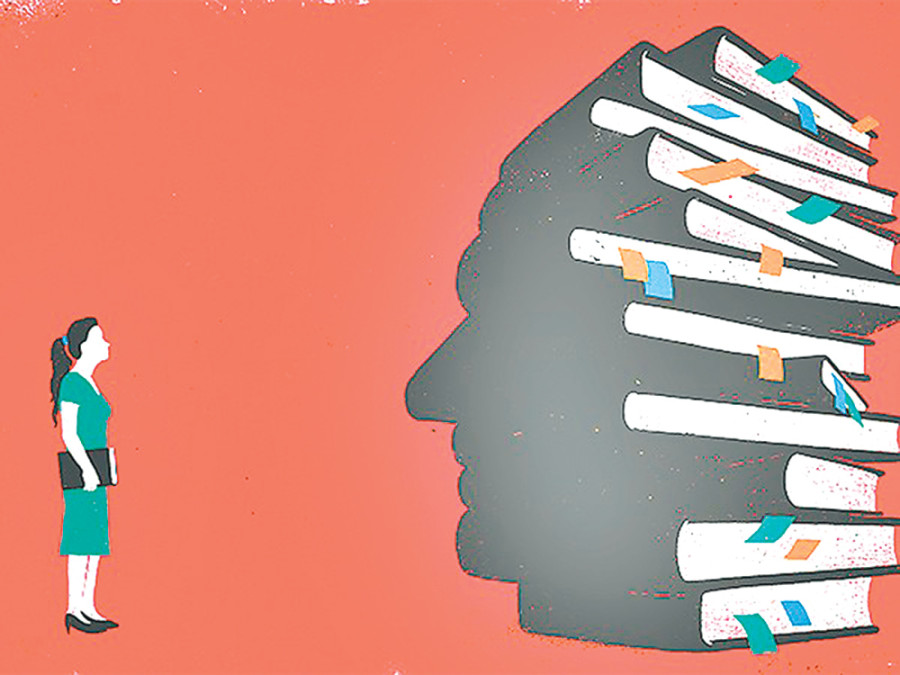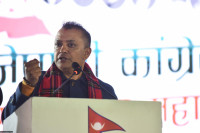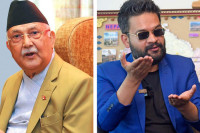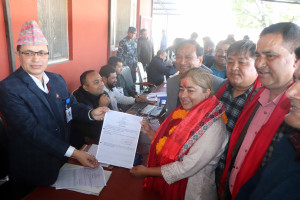Opinion
In a sorry state
With growing population, libraries have become increasingly necessary, yet they are neglected more and more
Shyam Kc
A couple of months ago, a Nepali language daily carried a front-page news piece about the sorry plight of the National Library that was badly affected by last year’s earthquake. A recent follow-up news story on the subject indicated that despite the media attention given to the situation of major libraries, the authorities have apparently done little or nothing to improve it so far.
What are libraries and how do they matter to the young and the old, the rich and the poor as well as students and other youths? It is not for nothing that some diplomatic missions in Nepal such the US, British, Indian, French and Russian missions have libraries that are open to the Nepali people. No doubt some of them have been set up with the intention of influencing the public. But a discriminating reader can easily differentiate between mere propaganda and truly, unbiased information. And, of course, libraries are treasure trove of literature. They are a valuable source for anyone wanting to learn more than what is taught in classrooms. They help youths develop themselves so that they can overcome life’s innumerable ups and downs. In addition, libraries are a storehouse of national heritage documents. And then, there are academic books, journals and magazines that help students in the pursuit of their knowledge. Other major libraries affected by the quake include the Kaiser Library, the Tribhuvan University (TU) Central Library and some other important ones.
In days of yore
I had the opportunity to visit the Kaiser Library at Keshar Mahal several times. On every visit, I was impressed by its collection of books since it was a personal library. By contrast, the TU Central Library was not all that impressive in those days (early 1960s). It was then located at Tripureshwor, and since we were TU students pursuing our post-graduate degree, we were frequent visitors. The library grew by leaps and bounds when it was shifted to Kirtipur, but as I was no longer a TU student, there was just a couple of occasions when I visited the library. I was impressed by its growth from a small library at Tripureshwor to a massive one at Kirtipur. As far as the National Library was concerned, I hardly ever visited it.
However, the point is there was a national library right in the heart of the city at New Road. It was operated by some youths and was open to all at a very nominal monthly fee. It contained mostly novels. A group of youths had also set up a library in our locality where the cost of borrowing books for local residents was virtually nothing. I was not involved in its establishment as I was too young. But the point is that in those days, this kind of laudable youth initiative was not limited to my area but was also prevalent in other localities of the city. At the very least, the presence of libraries in different parts of the city helped keep some of the youths from indulging in gambling, a popular pastime among the city’s male population in those days.
Misplaced priorities
Slowly but steadily, such libraries established through the initiative of local youths began to disappear, and one wonders if any is left today. The main reason seems to be a lack of funds and the fact that the youths who took the initiative began venturing into different fields as they had to make a living. Sadly, this kind of initiative seems to be lacking today. Despite the ever growing need for libraries, a vacuum exists in the city now. Little can be expected from the authorities when they fail to take adequate measures to protect and give due place to the country’s written heritage housed in the famed libraries brought down by the earthquake.
The authorities, both local and central, appear more intent on encouraging the real estate mafia—almost certainly for a price and financial contributions to political parties—than on meeting the needs of the youths. There seems to be a mistaken belief that what we need in the city today are more and more shopping centres and high-rise apartment buildings and not libraries and other necessities such as public playgrounds and parks. There seems to no regret on the part of our “enlightened” leaders that the largest open space in the valley, Tundikhel, has been fragmented and will go down as a blot on our attempt to provide adequate playground and open space for the youths and the old alike to play or to walk around without facing the risk of being run over by speeding vehicles in the streets. Playgrounds and open spaces provide no revenue to the local and central governments, which tax people without paying them back adequately in terms of facilities and services. By contrast, the craze for buildings allegedly results in the enrichment of officials at the local and central governments. The disappearance of libraries set up through local initiatives and the steady loss of open spaces has created a vacuum in urban life.
This vacuum has to be filled. The need for at least one local library in every ward of the country’s major municipalities cannot be over stressed. Spending time in such libraries will provide long term benefit to the youths and to the country. The government would do well to formulate policies on local libraries, playgrounds and parks.
With a growing population, they have become increasingly necessary, and yet they are neglected more and more. The local authorities, such as municipalities, should have no difficulty setting up one small library in each ward that is under their jurisdiction. Also, the wrecked libraries of national status must be restored as soon as possible. A government that goes on spending billions on less important matters can at least do this and help people preserve their heritage through manuscripts, books and other valuable artefacts. But then this can only happen when political parties give up their present power-hungry characteristic and unite on issues that must take precedence over party politics. Alas, that may be hoping for too much.




 14.12°C Kathmandu
14.12°C Kathmandu










